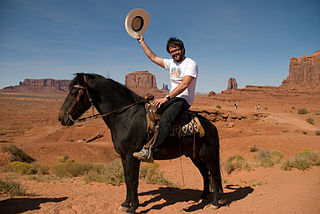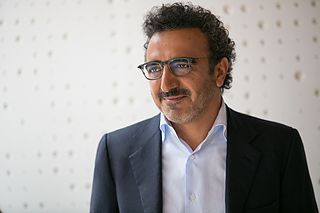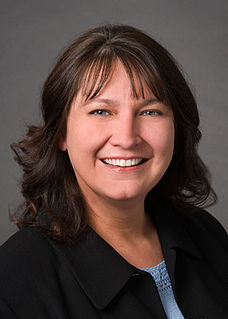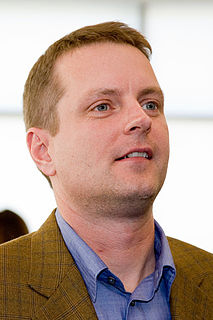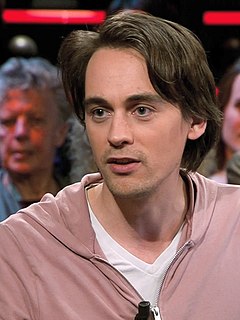A Quote by Stewart Butterfield
There was a lot of dialogue between the people who were developing Flickr and their users to get feedback on how they wanted Flickr to develop. That interaction made the initial community very strong, and then that seed was there for new people who joined to make the community experience strong for them, too.
Related Quotes
The thing that impressed me then as now about New York… was the sharp, and at the same time immense, contrast it showed between the dull and the shrewd, the strong and the weak, the rich and the poor, the wise and the ignorant… the strong, or those who ultimately dominated, were so very strong, and the weak so very, very weak - and so very, very many.
Entrepreneurship is seen as if you're in Silicon Valley or New York City and starting an app business or a social-media business, which is cool. But what we really have to focus on is people who make things, and how can we fund them, and how can we encourage people to stay in their community and make a difference in their community.
Theres no such thing as Flickr Pro because today, with cameras as pervasive as they are, theres no such thing, really, as professional photographers when theres everything thats professional photographers. Certainly theres varying levels of skills but we didnt want to have a Flickr Pro anymore. We wanted everyone to have professional quality photo space and sharing.
In any community there's a strong pull home. People want to return, see their community get better economically and socially. You can build those community-grown opportunities for the kids who've graduated from college to return home, to provide businesses and support things going on. It'll only happen through education.
What's been important with Flickr is the community that's been there from the beginning and the serious photographers that are there creating and sharing great content. If we lose that at some point then I think we have potential issues, but so far we've been able to do a really good job of maintaining that.
Our mission is to help people discover and support great journalism. But something like Blendle, asking micropayments for journalism, hasn't been done before on this scale and with our broad support from media companies. So we want to do it well and listen very carefully to the feedback of our users first. That feedback from the early community is very important to us.
One thing I'm grateful for, and also surprised and excited about, is that I have a place in the community of comics now. In a real way. And I honor that. A lot of what I do is in support of the community and bringing new talent - talking to people that people don't know. And defining us as a community.
However, community is first of all a quality of the heart. It grows from the spiritual knowledge that we are alive not for ourselves but for one another.
Community is the fruit of our capacity to make the interests of others more important than our own.
The question, therefore, is not 'How can we make community?' but, 'How can we develop and nurture giving hearts?'

